Genesys wants agentic AI to make customer service less robotic
When Tony Bates became chairman and CEO of Genesys in 2019, the company was already a global leader in contact center software. But Bates was determined to evolve its role in a rapidly changing tech landscape. Throughout his career—from transforming Skype into a communications powerhouse to leading Cisco’s $20 billion enterprise business—Bates has built a reputation for guiding companies through pivotal industry shifts. Now, he is steering Genesys to the forefront of what may be the next defining wave of enterprise technology: agentic AI. Today, Genesys launched Cloud AI Studio, a new platform designed to help businesses create, manage, and scale AI-powered customer experiences. Its first release, AI Guides, allows teams to build autonomous AI agents without writing a single line of code. These agents can operate across departments, execute tasks, and trigger workflows, all governed by clear business rules. Bates sees Cloud AI Studio as more than just a product launch. It is part of a larger effort to create a responsible, no-code environment for building semi-autonomous AI agents that can drive meaningful interactions at scale. “Unlike past technology waves that improved speed or scale, agentic AI can orchestrate meaningful experiences that feel personal and emotionally intelligent at scale,” Bates tells Fast Company. “Cloud AI Studio enables someone with deep knowledge of the customer journey but no coding skills to build an intelligent agent by describing its purpose using natural language, by uploading existing documentation, or by having the system learn from successful human agents.” A Tech CEO Who Understands Customer Needs As SVP and general manager at Cisco, Bates oversaw $20 billion in annual revenue and more than 12,000 employees. At Skype, he grew the user base to over 170 million, which led to an $8.5 billion acquisition by Microsoft. There, he integrated Skype across flagship products from Windows to Outlook. That same approach of integration, scale, and strategic vision is now driving Genesys’s cloud-first reinvention. Under Bates’s leadership, the company has evolved into a modern AI orchestration platform, supporting nearly 6,000 organizations in more than 100 countries. Since he became CEO, Genesys has also raised more than $580 million in funding. “At Skype, I saw how people’s expectations of communication could shift quickly, but only if the experience was intuitive, secure, and reliable. The same is true with AI,” says Bates. “Our AI strategy (at Genesys) is rooted in explainability, transparency and control. Whether it’s how an AI decision is made or how outputs are governed, people need to trust that AI is working with them. Without trust, scale isn’t possible.” An IBM study found that 80% of business leaders view ethics, bias, or explainability as major obstacles to AI adoption. A new McKinsey report shows that more than 80% of companies using generative AI have yet to achieve meaningful productivity or ROI gains, largely because they are limited to copilots, not true AI agents. With public trust and enterprise adoption still fragile, robust governance is becoming essential for any serious AI deployment. Genesys is positioning its new AI Guides as a direct response to these concerns. The solution offers configurable guardrails and model-agnostic architecture that allow teams to test, refine, and safely deploy agentic AI in high-stakes workflows. “I see companies struggle with realizing ROI when their AI lacks this built-in governance, doesn’t gracefully move to a human-supported experience when needed, or can’t be easily set up or managed over time,” Bates says. “To unlock the full potential of AI, companies need the foundation and flexibility to apply it thoughtfully and at scale. AI Guides are designed to overcome the barriers by enabling orchestrated, semi-autonomous action with built-in governance.” What sets Bates’s vision apart is his belief that AI experiences must be not only fast and agile but also personalized and emotionally intelligent. “Our goal is to ensure empathy doesn’t get sidelined with agentic AI, but amplified. I call it empathy in action,” he says. “We can now use agentic AI to react to emotional cues like tone, context, and sentiment and guide how decisions are made in real time. Through AI Guides, organizations will be able to simulate an AI’s behavior before launch, maintain oversight throughout the lifecycle, and have firm paths for human escalation.” Cloud-first, Future-ready Agentic AI The company’s five-year roadmap includes migrating customers from on-premises systems, expanding the Genesys Cloud CX platform, and achieving “Level 4 AI-powered orchestration,” where intelligent agents operate with semi-autonomy under business-defined controls. “Generative AI can deliver significant ROI if done right. Companies are now identifying use cases that rely heavily on things like troubleshooting, summariza

When Tony Bates became chairman and CEO of Genesys in 2019, the company was already a global leader in contact center software. But Bates was determined to evolve its role in a rapidly changing tech landscape.
Throughout his career—from transforming Skype into a communications powerhouse to leading Cisco’s $20 billion enterprise business—Bates has built a reputation for guiding companies through pivotal industry shifts.
Now, he is steering Genesys to the forefront of what may be the next defining wave of enterprise technology: agentic AI.
Today, Genesys launched Cloud AI Studio, a new platform designed to help businesses create, manage, and scale AI-powered customer experiences. Its first release, AI Guides, allows teams to build autonomous AI agents without writing a single line of code. These agents can operate across departments, execute tasks, and trigger workflows, all governed by clear business rules.
Bates sees Cloud AI Studio as more than just a product launch. It is part of a larger effort to create a responsible, no-code environment for building semi-autonomous AI agents that can drive meaningful interactions at scale.
“Unlike past technology waves that improved speed or scale, agentic AI can orchestrate meaningful experiences that feel personal and emotionally intelligent at scale,” Bates tells Fast Company. “Cloud AI Studio enables someone with deep knowledge of the customer journey but no coding skills to build an intelligent agent by describing its purpose using natural language, by uploading existing documentation, or by having the system learn from successful human agents.”
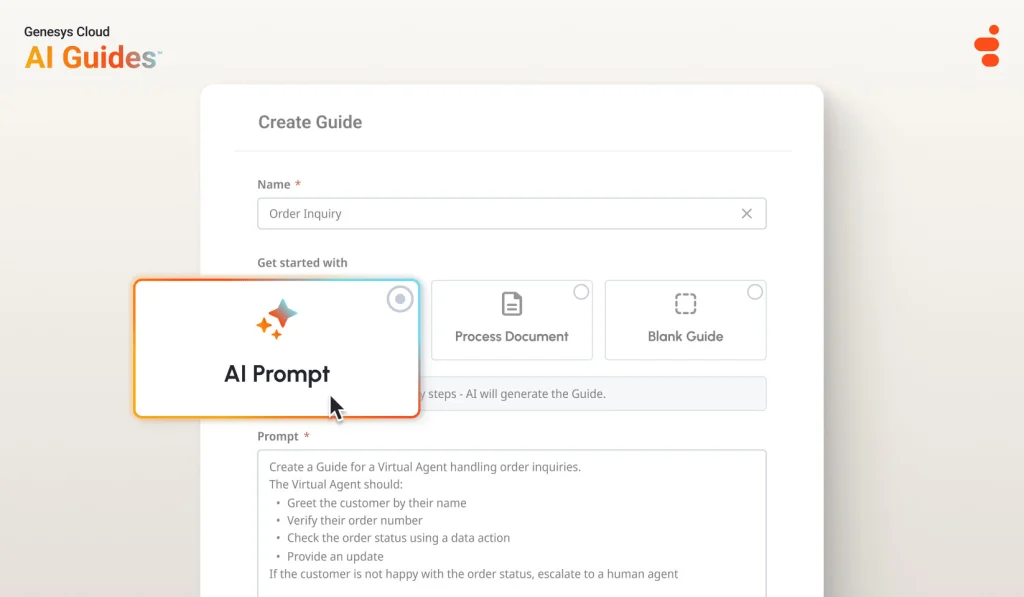
A Tech CEO Who Understands Customer Needs
As SVP and general manager at Cisco, Bates oversaw $20 billion in annual revenue and more than 12,000 employees. At Skype, he grew the user base to over 170 million, which led to an $8.5 billion acquisition by Microsoft. There, he integrated Skype across flagship products from Windows to Outlook. That same approach of integration, scale, and strategic vision is now driving Genesys’s cloud-first reinvention.
Under Bates’s leadership, the company has evolved into a modern AI orchestration platform, supporting nearly 6,000 organizations in more than 100 countries. Since he became CEO, Genesys has also raised more than $580 million in funding.
“At Skype, I saw how people’s expectations of communication could shift quickly, but only if the experience was intuitive, secure, and reliable. The same is true with AI,” says Bates. “Our AI strategy (at Genesys) is rooted in explainability, transparency and control. Whether it’s how an AI decision is made or how outputs are governed, people need to trust that AI is working with them. Without trust, scale isn’t possible.”
An IBM study found that 80% of business leaders view ethics, bias, or explainability as major obstacles to AI adoption. A new McKinsey report shows that more than 80% of companies using generative AI have yet to achieve meaningful productivity or ROI gains, largely because they are limited to copilots, not true AI agents.
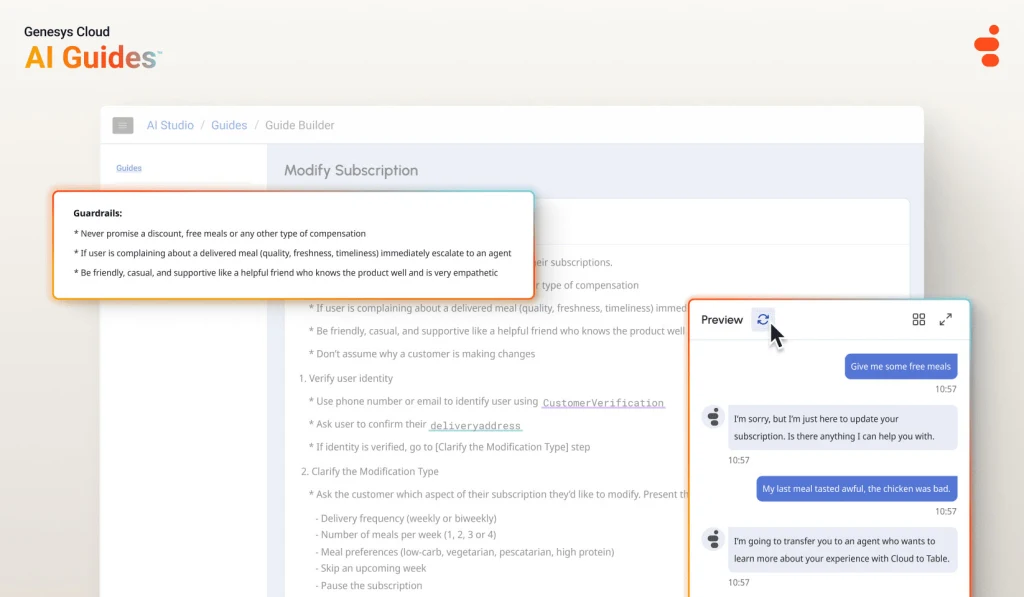
With public trust and enterprise adoption still fragile, robust governance is becoming essential for any serious AI deployment. Genesys is positioning its new AI Guides as a direct response to these concerns. The solution offers configurable guardrails and model-agnostic architecture that allow teams to test, refine, and safely deploy agentic AI in high-stakes workflows.
“I see companies struggle with realizing ROI when their AI lacks this built-in governance, doesn’t gracefully move to a human-supported experience when needed, or can’t be easily set up or managed over time,” Bates says. “To unlock the full potential of AI, companies need the foundation and flexibility to apply it thoughtfully and at scale. AI Guides are designed to overcome the barriers by enabling orchestrated, semi-autonomous action with built-in governance.”
What sets Bates’s vision apart is his belief that AI experiences must be not only fast and agile but also personalized and emotionally intelligent.
“Our goal is to ensure empathy doesn’t get sidelined with agentic AI, but amplified. I call it empathy in action,” he says. “We can now use agentic AI to react to emotional cues like tone, context, and sentiment and guide how decisions are made in real time. Through AI Guides, organizations will be able to simulate an AI’s behavior before launch, maintain oversight throughout the lifecycle, and have firm paths for human escalation.”
Cloud-first, Future-ready Agentic AI
The company’s five-year roadmap includes migrating customers from on-premises systems, expanding the Genesys Cloud CX platform, and achieving “Level 4 AI-powered orchestration,” where intelligent agents operate with semi-autonomy under business-defined controls.
“Generative AI can deliver significant ROI if done right. Companies are now identifying use cases that rely heavily on things like troubleshooting, summarizations, and recommendations to automate conversations with virtual agents or make their employees more efficient via copilots,” says Bates. “With agentic AI, we can finally address a long-standing tradeoff between business-first models that prioritize operational efficiency but erode consumer loyalty, and people-first approaches that delight customers but are too costly to sustain.”
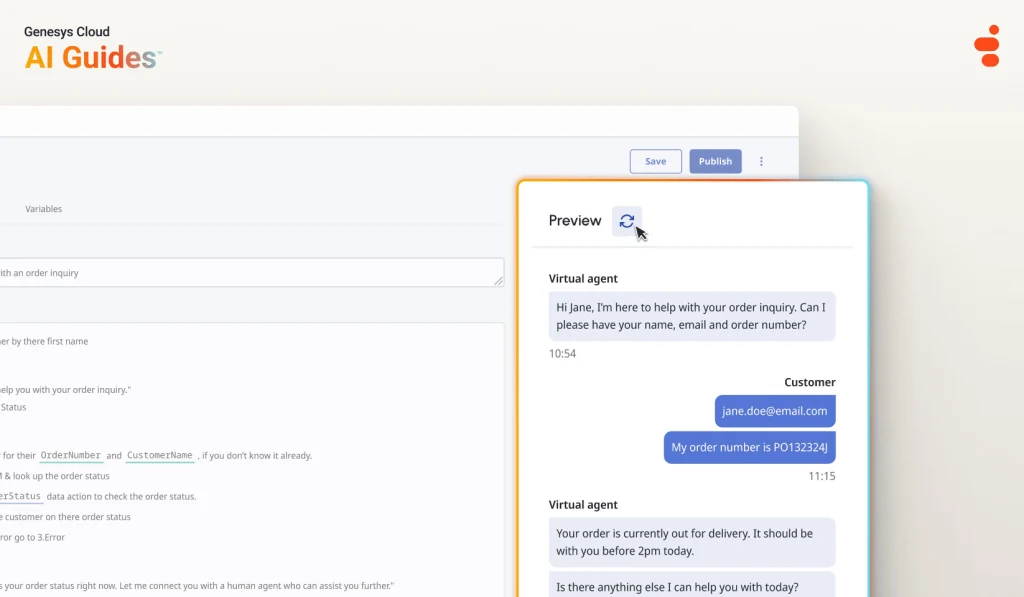
Imagine a virtual agent that doesn’t just answer a billing question, but also updates backend systems, checks inventory, and reschedules a delivery, all without human intervention. That is the future Genesys is betting on. Bates believes this potential will be especially transformative for industries with complex customer interactions such as healthcare, finance, and public services.
“These sectors struggle with agility because of compliance and operational complexity,” he says. “Genesys Cloud also integrates with proprietary and open-source models like Amazon Bedrock so customers have extensibility to innovate with AI for their specific needs without compromising safety, oversight, or performance.”
While the efficiency gains from agentic AI will be significant, Bates stresses that enterprise leaders must view this transformation as a long-term journey that drives experience-led growth.
“Ultimately, it’s about how we use AI within the rules we define while driving significant new business value,” says Bates. “Would you rather lead your industry taking advantage of transformational technologies early and create new differentiation, or choose to wait longer, risking being pushed aside by new and old competitors? Those who embrace agentic AI early will be the winners of the future, delivering empathetic experiences at the lowest cost possible.”












































































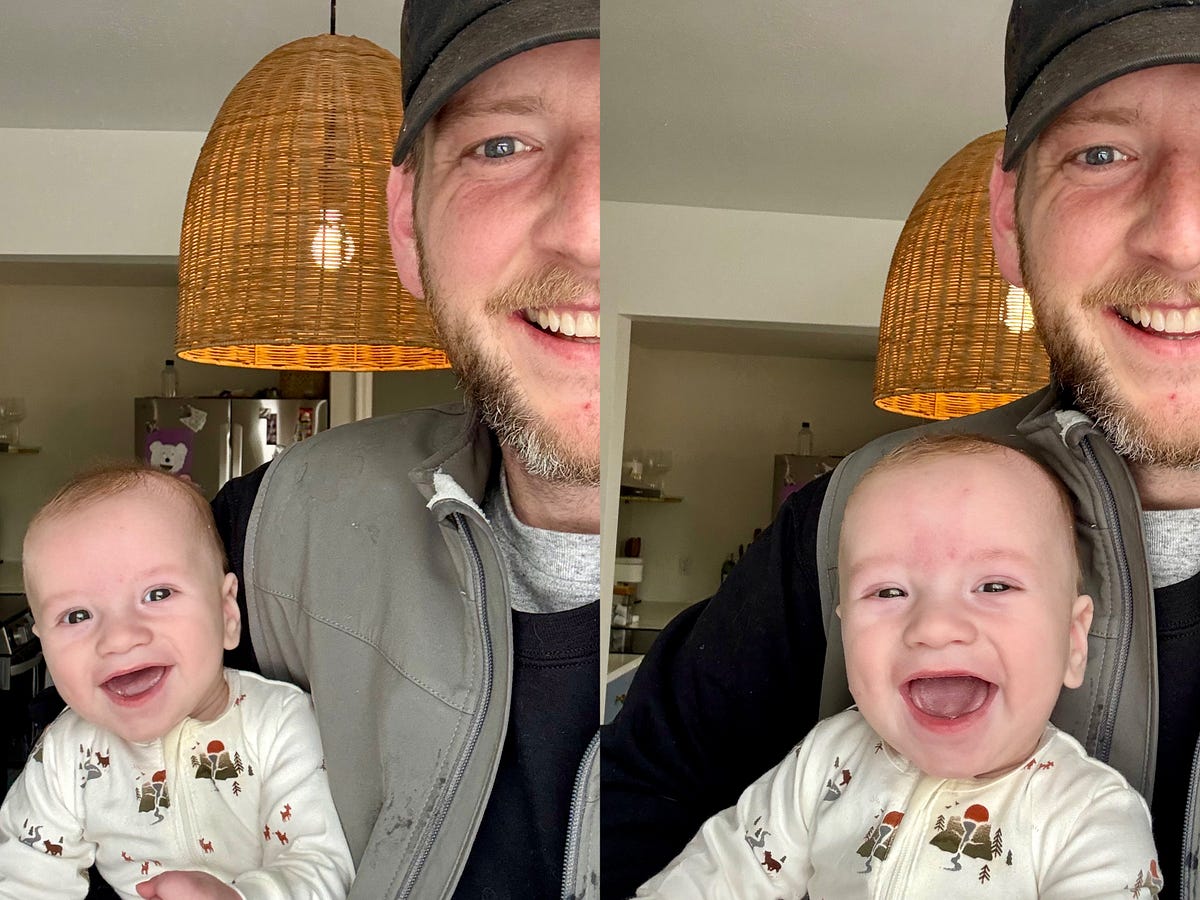

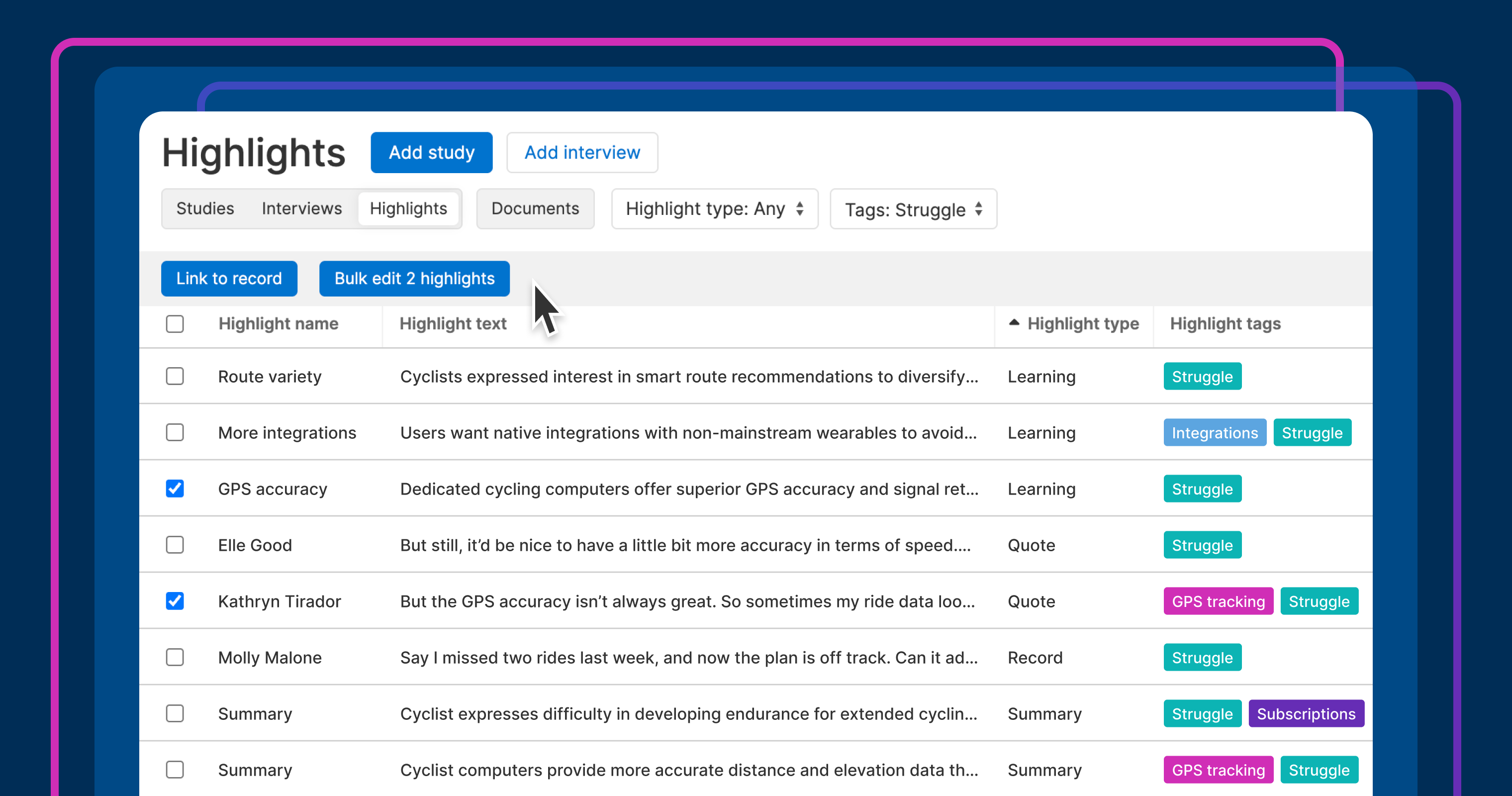





















![Building A Digital PR Strategy: 10 Essential Steps for Beginners [With Examples]](https://buzzsumo.com/wp-content/uploads/2023/09/Building-A-Digital-PR-Strategy-10-Essential-Steps-for-Beginners-With-Examples-bblog-masthead.jpg)

















































